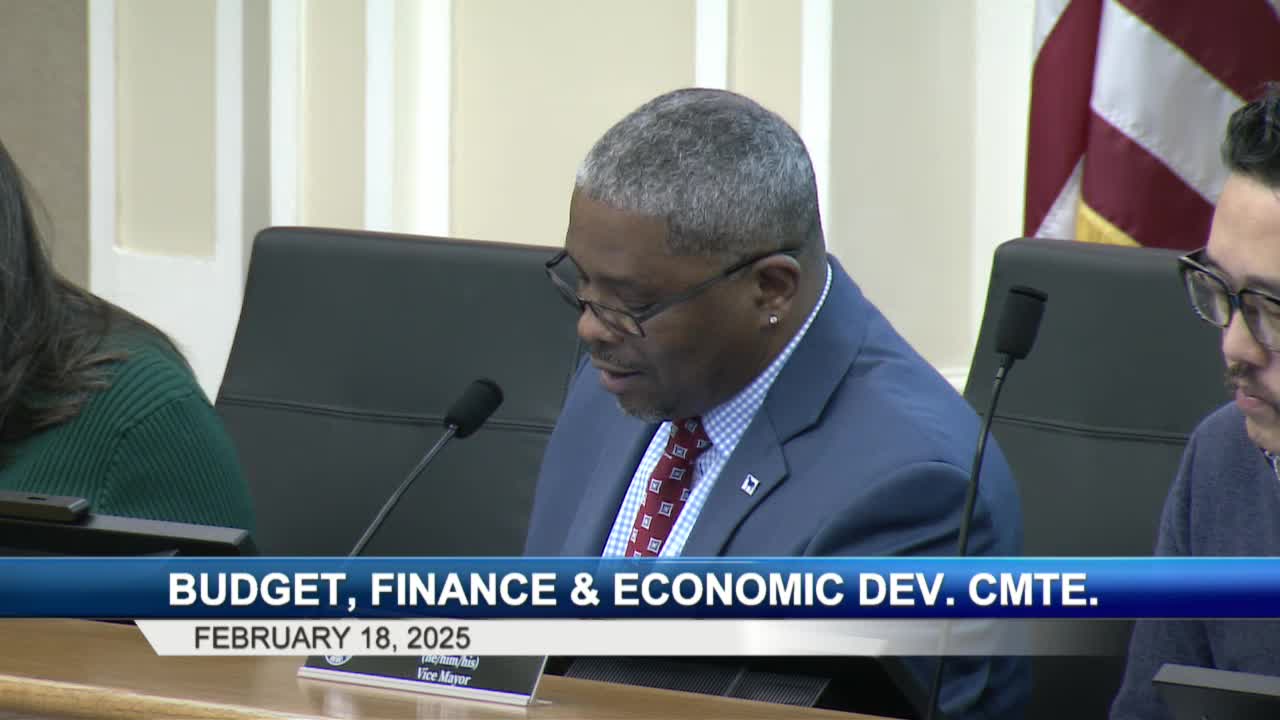UK economist tells committee economy will grow more slowly; payroll-tax growth still positive
Get AI-powered insights, summaries, and transcripts
Subscribe
Summary
Dr. Michael Clark of the University of Kentucky told the committee that Lexington’s economy should continue to grow but at a slower, more typical pace than the post‑pandemic surge. Staff forecast payroll‑tax revenue growth of about 4.5% in 2025 and 4.1% in 2026 and warned that net‑profits collections are volatile.
The Budget, Finance and Economic Development Committee received the University of Kentucky’s annual Lexington economic outlook and occupational‑tax forecast from Dr. Michael Clark, director of the Center for Business and Economic Research at UK’s Gatton College.
Clark told the committee that, after an unusually strong post‑pandemic run, employment and wage growth were moderating and returning toward pre‑pandemic norms. “Despite a lot of things going on, the economy actually seems to be in relatively good shape,” Clark said, while warning that growth rates will be lower than the extraordinary gains seen earlier in the decade.
Clark said staff forecast the occupational (payroll) tax base will continue to grow but at slower rates, projecting about 4.5% growth for payroll tax revenue in 2025 and roughly 4.1% in 2026. He described net‑profits receipts as especially difficult to predict; staff expect net profits to rebound in 2025 (about a 7% increase) and to ease in 2026 (near a 1.2% decrease in the forecast). Clark also explained that recent increases in the local unemployment rate reflected more people entering the labor force, not a decline in the number of people working.
Clark flagged the principal risks to his forecast as trade policy (tariffs), Federal Reserve rate decisions, and changes in labor‑supply trends tied to immigration and national policy. “When we start looking at tariffs… that ends up being inflationary pressure,” he said, adding that higher or persistent inflation could alter Federal Reserve actions and economic outcomes.
Committee members probed several topics: Vice Mayor Wu asked about the drivers of wage growth versus employment; Clark pointed to long‑term productivity gains (technology, skills) and short‑term labor‑market tightness affecting wages. Council Member Sabigny asked about geographic and data sources; Clark explained the team uses both MSA data for timelier monthly readings and unemployment‑insurance payroll data for more precise county counts (the latter is lagged). Other members raised sectoral questions about manufacturing and information‑sector trends, and about how University of Kentucky employment figures are classified for local statistics.
Clark concluded by reiterating the forecast takeaway: continued growth but at a slower, more sustainable pace than the outsized gains following the pandemic.
The committee then moved on to a parks funding briefing.
